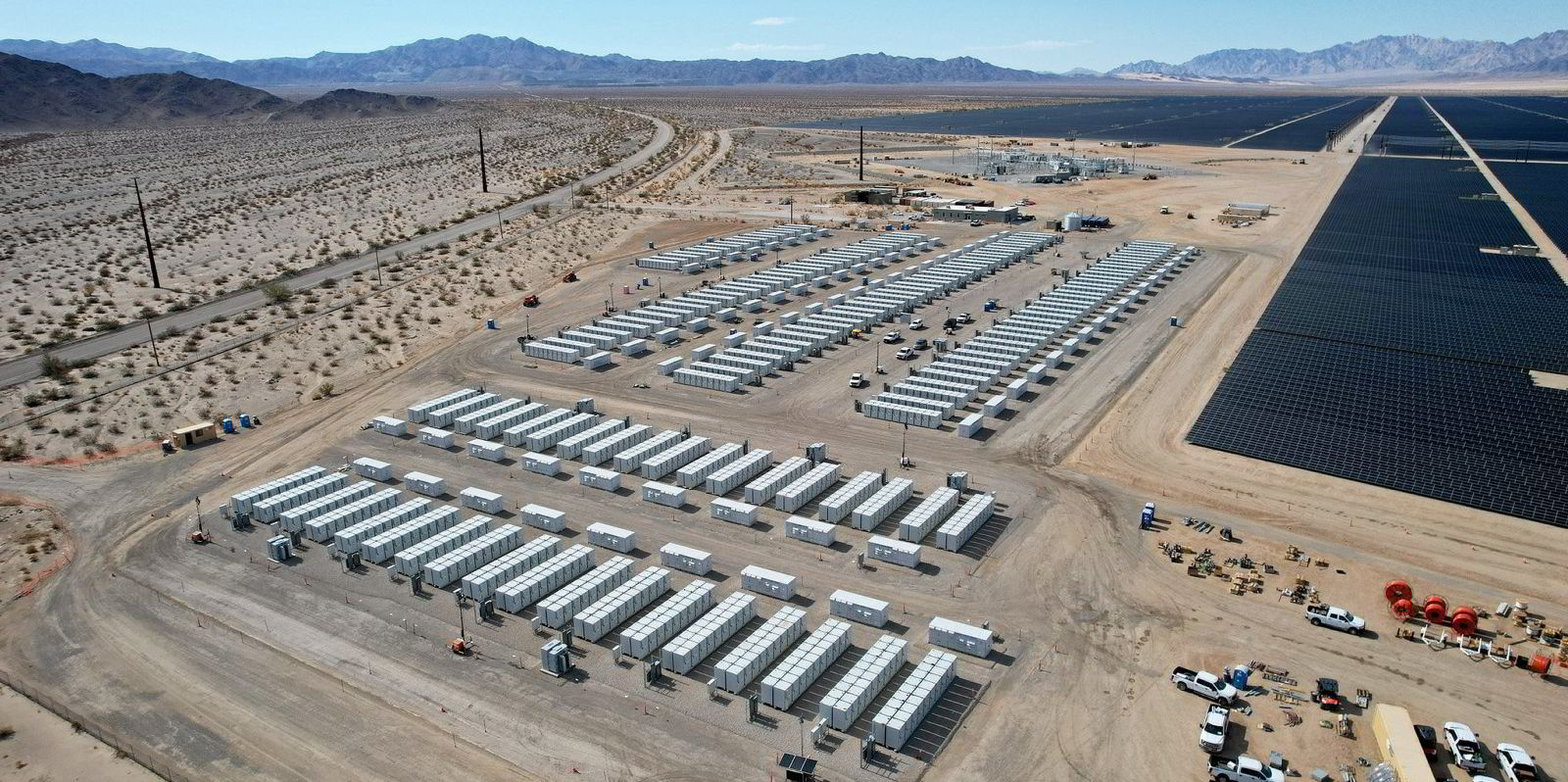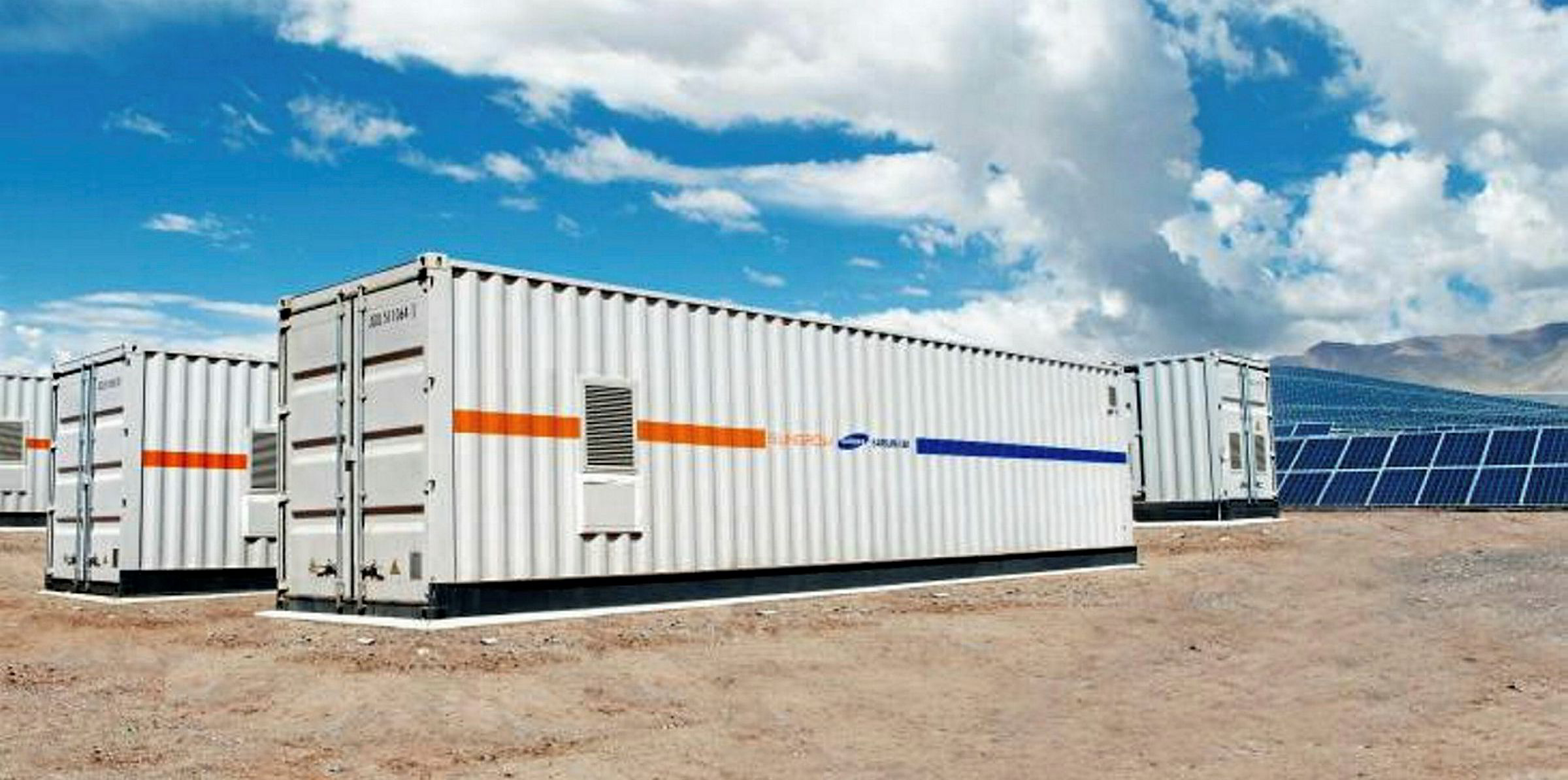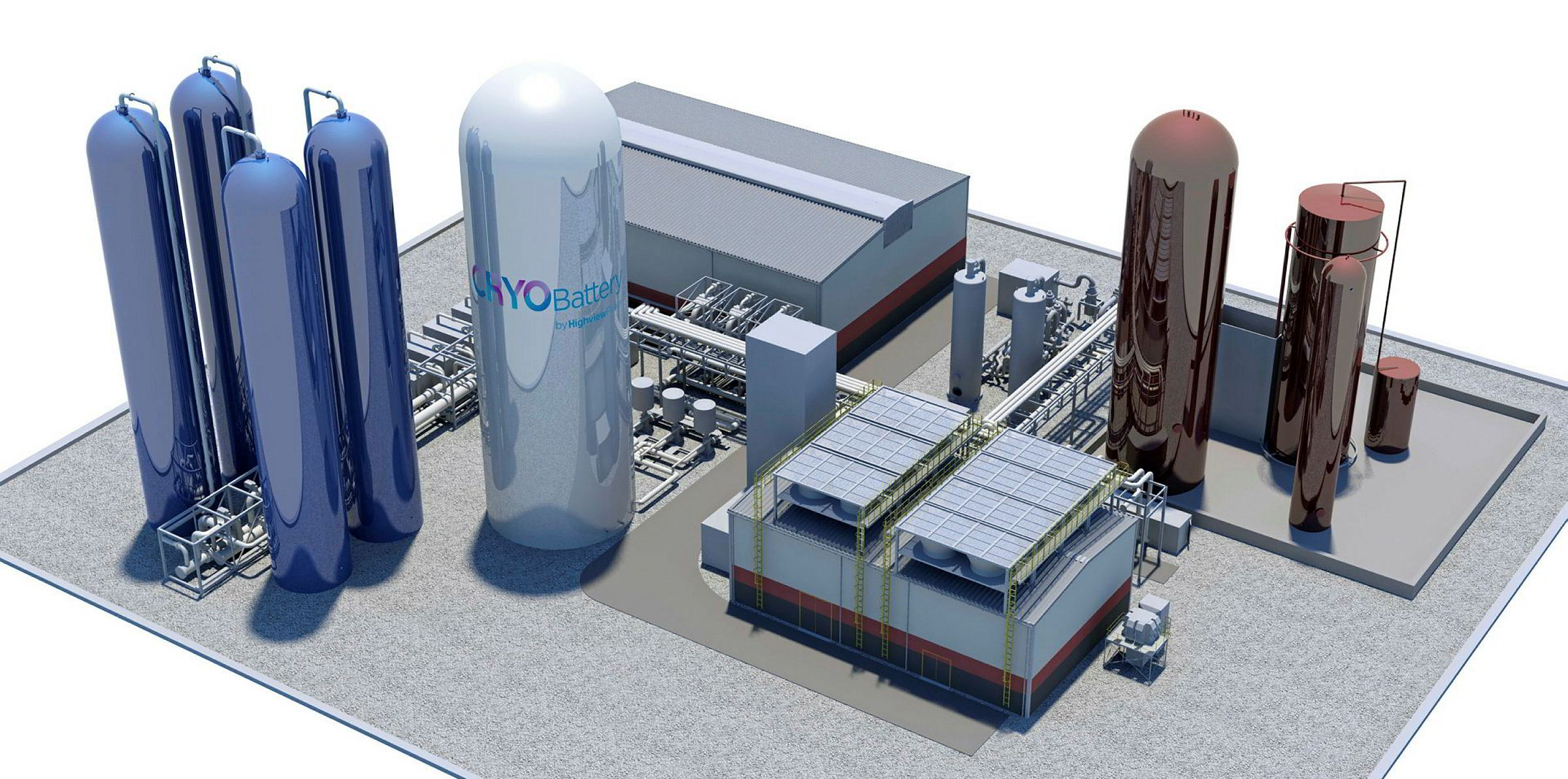The UK said it expects a surge in huge deployments of batteries and other technologies to store wind and solar power after changes to planning rules that it said could spur more than 100 large projects.
Changes announced on Thursday could slash to a few months the time needed to secure planning consent for storage projects above 50MW, which can now be approved by local authorities rather than a longer journey through national-level infrastructure procedures that could take years.
The changes in England and Wales apply to battery-based energy storage systems and emerging technologies such as compressed air and liquid air storage, which while few in number now are expected to play an increasing role. Pumped-hydro storage is not included.
The UK’s Department for Business, Energy and Industrial Strategy said: “Removing barriers for energy storage projects, which are discouraging bolder investment decisions in larger battery facilities, could treble the number of batteries serving the electricity grid.
“It will help bring about storage cells that are five times bigger than those currently available.”
The UK has about 1GW of storage in operation and 4GW in the project pipeline.
While the majority of the facilities are battery-based, the world’s first commercial liquid-air energy storage facility — a 50MW/250MWh unit — is to begin construction this year in Greater Manchester, England, after technology company Highview Power received a £10m ($12.5m) grant from the UK government.
The planning changes were welcomed by the UK clean energy sector. Rebecca Williams, director of policy and regulation at industry body renewable UK, said: “We’re glad that the government has listened to industry and will now allow local planning authorities to determine battery projects of 50MW and above rather than the secretary of state which can be a longer and more expensive process.
“This scale of battery is becoming the new norm. Today’s announcement will stimulate investment in the energy system we need to reach net zero as fast and as cheaply as possible.”
Swedish utility Vattenfall, which is allying storage with wind and solar in the UK, said: “The government’s decision to ease planning restrictions, so that more and larger energy storage can be installed is absolutely the right way to go.
“However, it’s crucial that storage is co-located at solar and wind farm sites, due to the significant logistical and cost benefits that co-location offers for grid connections and land. The electricity grid also needs urgent upgrades to be able to cope with the increasing demand for electricity.”




